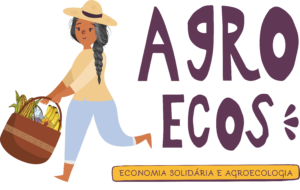Latin America | Agroecology and the Solidarity Economy
An alternative to the dominant agri-food system approach, ‘EcoSol-agroecology’ denotes a convergence of solidarity economy and agroecology movements. In Latin America, agroecology has been linked to the solidarity economy since the 1990s. Based at the Open University, UK, Les Levidow coordinated the AgroEcos project, which promoted and facilitated Eco-Sol agroecology networks. Here Levidow shares key learnings from Brazilian case studies. He introduces us to initiatives in the Baixada Santista region of São Paulo state, including a women’s producers’ union that reorganised their farmers market during pandemic restrictions first as an online fair and then as a drive-thru so members without internet access would not be excluded.
The dominant agri-food system prioritises wealth extraction through global value chains, rather than people’s food needs. Food insecurity and malnutrition are worsening globally, alongside many environmental harms, thus aggravating inequalities.
As one driver of these deteriorations, state policies continue to prioritise the production of commodity crops including maize, wheat and rice. A positive impact of this approach is the increased availability and reduced prices of these staple foods in many countries. However, this policy priority discourages and makes relatively more expensive the consumption of less subsidised foods such as fruits, vegetables and pulses, according to the FAO, and can perpetuate food insecurity and malnutrition.
More fundamentally, the problem lies in the corporate concentration of the food system, which mainly benefits input-suppliers and middlemen to the detriment of producers and consumers.

